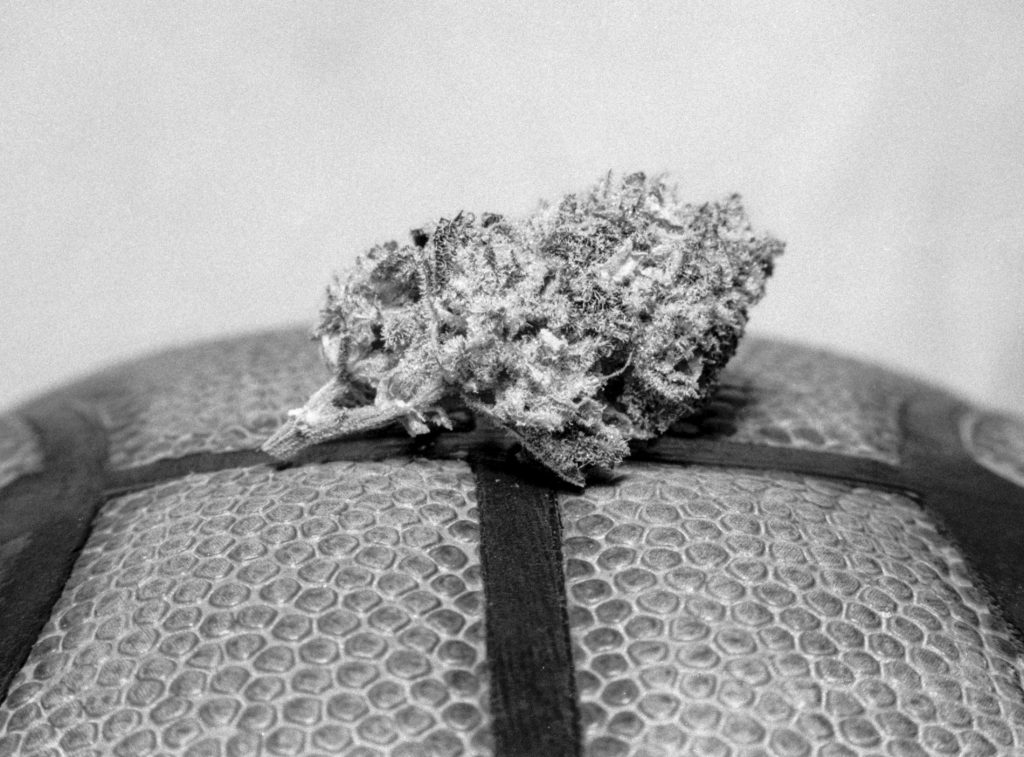| Submitted by: | Alec Skillings |
| Department: | Sociology |
| Faculty: | Arts |
Cannabis and elite athleticism are two subjects often assumed to be contrary and incompatible. This textural juxtaposition of a crystalline cannabis flower atop a worn leather basketball represents the atypical but definite relationship between cannabis and sport. Cannabis is the second most commonly consumed drug amongst university athletes. Cannabis—now federally legal for adults to purchase and consume in Canada—remains prohibited in U SPORTS competition. Athletes must conceal their cannabis use from the public and drug-testing agencies lest they face stigmatization and severe penalties. Using an inductive data-driven methodological approach, I conducted open-ended qualitative interviews with twelve current and former cannabis-using university athletes from across Western Canada. Athletes often use cannabis to manage academic, social, and health-related strains. Many of these strains are produced or amplified through participation in elite sport. Currently, a pharmacocentric paradigm dominates drug discourse and knowledge. The multiplicity of ways that athletes use cannabis, and variance in how it affects them, challenges this paradigm that defines drugs solely by their chemical properties. My findings support the proposition that drugs ought to be understood as fluid social constructions. Conceptualizing drugs as fluid social constructions brings to light how socio-contextual factors impact the biographies of drug users.

